1.1 Hidden Voices in Psychology
Learning Objectives
By the end of this chapter, you will be able to
- Identify key figures, including women and BIPOC psychologists, in the history of global psychology
- Identify key events in the history of global psychology
- Describe the role of women as a social group in the history of global psychology
- Describe the role of BIPOC as a social group in the history of global psychology
Hidden Voices in Psychology
Psychological science took flight in the late 19th century as many scholars began to think of human thoughts, feelings, and behaviors as measurable and predictable. Much of this development began in Austria, England, and the United States, and it quickly spread across Europe, East Asia, and Latin America. For over a century, the names of influential White, male, Western psychologists have filled the pages of psychology textbooks as though they were solely responsible for meaningful discoveries in psychological science. However, these White male psychologists were never alone. Here, we present the biographies of 20 extraordinary psychologists from diverse gender, ethnic, and racial backgrounds from the last century and a half.
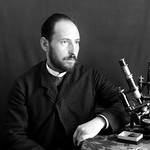 Dr. Santiago Ramón y Cajal (1852–1934), Spanish.
Dr. Santiago Ramón y Cajal (1852–1934), Spanish.
The father of modern neuroscience, Cajal published over 100 articles in multiple languages about the structure of the nervous system. In 1906, he received the Nobel Prize for Physiology and Medicine, becoming the first Spaniard to achieve this feat. Among other noteworthy accomplishments, Cajal established the neuron doctrine, which explained the existence of synaptic gaps between neurons and paved the way for great developments in clinical, neurobiological, and comparative psychology.
 Dr. Yūjirō Motora (1858–1912), Japanese.
Dr. Yūjirō Motora (1858–1912), Japanese.
Motora introduced experimental psychology to Japan. Having studied under G. Stanley Hall at Johns Hopkins University, Motora was particularly interested in psychophysics, studying such topics as reaction time and sensation. Motora published Psychology, the first Japanese textbook describing psychology as a science.

Dr. Matsumoto Matatarō (1865–1943), Japanese.
A student of Motora, Matsumoto rose to prominence as one of the most influential psychologists in Japan. He founded the Japanese Journal of Psychology and the Japanese Psychological Association. Much like his mentor, Matsumoto was an experimental psychologist and was interested in topics such as mental movement and intelligence.
 Dr. José Ingenieros (1877–1925), Argentine.
Dr. José Ingenieros (1877–1925), Argentine.
Although a physician and pharmacist by trade, Ingenieros impacted many academic disciplines, including psychology, criminology, philosophy, and sociology. For instance, Ingenieros published one of the earliest recorded works on biological psychology, Principles of Biological Psychology (1910). Ingenieros’s impact is largely attributable to his prolific writing: he published over 450 articles and 47 books in his lifetime. His most influential book, The Mediocre Man (1913), describes sociological struggles that take place between highly accomplished men and less accomplished men.
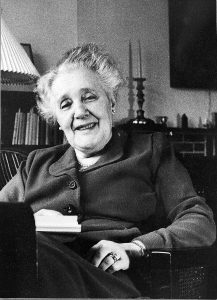 Melanie Klein (1882–1960), Austrian/British.
Melanie Klein (1882–1960), Austrian/British.
Klein developed the famous technique known as “play therapy.” She was one of the first psychoanalysts to push back on Freudian theories while still embracing the basic tenets of psychoanalysis. Klein also introduced object relations theory. As part of this theory, she described a mother-infant relationship and identified two previously unrecognized development stages: paranoid-schizoid position and depressive position.
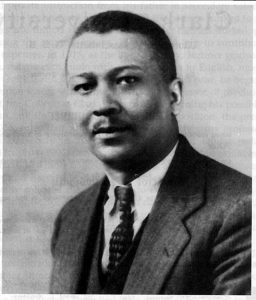
Dr. Francis Cecil Sumner (1895–1954), African American.
The father of Black psychology, Sumner was the first African American person to receive a Ph.D. in psychology. Sumner is known for his work in establishing the psychology department at Howard University to train African American psychologists. He is also known for his vast contributions to research that counteracted racism and bias in the psychological studies of African Americans.
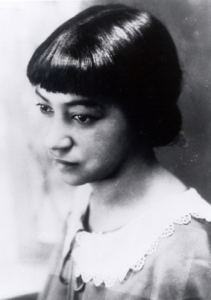 Dr. Inez Beverly Prosser (1895–1934), African American.
Dr. Inez Beverly Prosser (1895–1934), African American.
The first African American woman to receive her Ph.D. in psychology, Prosser studied the academic development of African American children in integrated and segregated schools. She was one of the first psychologists to argue that racism had a damaging effect on the academic achievement of African American children, and her research was cited in the debates of Brown v. Board of Education in 1954.
 Dr. Pan Shu (1897–1988), Chinese.
Dr. Pan Shu (1897–1988), Chinese.
Pan was one of the first Chinese psychologists and made particularly important contributions to how Chinese scholars conceptualized psychology. Although many of his contemporaries deemed psychology too abstract, Pan embraced psychology as existing between the natural and social sciences and championed its growth in China. Even during the Cultural Revolution of the mid-20th century, when psychology was actively repressed, Pan continued to write about psychology in secret. For his contributions, Pan was president of the Chinese Psychological Society from 1955 to 1984.
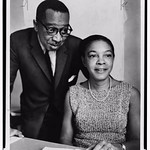 Dr. Kenneth Bancroft Clark (1914–2005) and Dr. Mamie Phipps Clark (1917–1983), African American.
Dr. Kenneth Bancroft Clark (1914–2005) and Dr. Mamie Phipps Clark (1917–1983), African American.
The Clarks, a married couple, are best known for their famous doll experiments that showed that even Black children as young as three years old exhibited a preference for White dolls. They concluded that segregation was psychologically damaging and caused internalized racism. Their work played a critical role in the 1954 case Brown v. Board of Education, which resulted in the Supreme Court decision banning race-based segregation in schools.
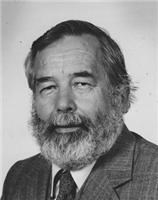 Dr. John Garcia (1917–2012), Spanish American.
Dr. John Garcia (1917–2012), Spanish American.
Garcia primarily conducted biopsychological research using animal models. His groundbreaking research spawned the “Garcia Effect,” a term describing conditioned taste aversion. Garcia’s research changed the way psychologists thought about associative learning by showing that conditioning does not depend exclusively on naturally occurring stimuli and responses; rather, people can learn new associations with dangerous stimuli.
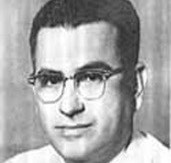 Dr. Efraín Sánchez Hidalgo (1918–1974), Puerto Rican American.
Dr. Efraín Sánchez Hidalgo (1918–1974), Puerto Rican American.
Hidalgo was the first Puerto Rican to receive a Ph.D. in psychology in the United States. Hidalgo received acclaim for his research on the symbiotic relationships between friends, and published more than 150 publications throughout his life. One of his books, Educational Psychology, has been edited and republished seven times and is used as the standard educational psychology textbook in nearly all Latin American countries, the Philippines, and Spain.
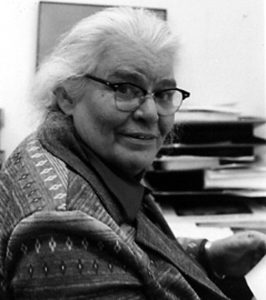 Dr. Carolyn Lewis Attneave (1920–1992), Native American.
Dr. Carolyn Lewis Attneave (1920–1992), Native American.
The first Native American woman in the United States to earn a degree in psychology, Attneave is a descendant of the Delaware Indian tribe and founded one of North America’s largest Indian Centers, the Boston Indian Council. Additionally, she founded the Network of Indian Psychologists newsletter to facilitate the exchange of information about services available to Native American communities.
 Dr. Jing Qicheng (1926–2008), Chinese.
Dr. Jing Qicheng (1926–2008), Chinese.
Jing was a Chinese psychologist. Although he published important research in cognitive and developmental psychology, he is best remembered for his efforts to globalize psychology, bridging gaps between the East and West. Jing helped bring foreign ideas to China, even when such ideas were not politically popular, while also disseminating Chinese research abroad. One of his final professional contributions was organizing and hosting the 28th International Congress of Psychology in 2004.

Dr. Martha Bernal (1931–2001), Mexican American.
The first Latina to earn a Ph.D. in psychology in the United States, Bernal contributed to ethnic minority and multicultural psychology, cofounding the National Hispanic Psychological Association. Bernal helped to advance the use of learning theory and methods in the treatment and assessment of children exhibiting maladaptive behaviors.
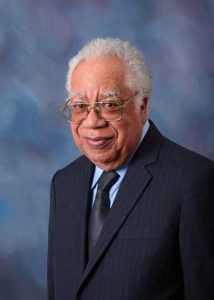 Dr. Joseph L. White (1932–2017), African American.
Dr. Joseph L. White (1932–2017), African American.
The “godfather” of Black psychology, White carried on the legacy of Dr. Francis Cecil Sumner by founding the Association of Black Psychologists, the Black Studies Program at San Francisco State University, and the California Educational Opportunity Program. Collectively, these programs have helped over 300,000 minority students earn college degrees and pursue professional careers.
 Dr. Yang Kuo-Shu (1932–2018), Taiwanese.
Dr. Yang Kuo-Shu (1932–2018), Taiwanese.
Yang is best known as the founder of indigenized Chinese psychology, meaning psychology that is rooted in the values of Chinese cultures. Having studied in the United States and worked in Taiwan, Yang argued that Western psychology was not well-suited to describing the thoughts, feelings, and behaviors of peoples from non-Western societies, and he wrote many papers about unique phenomena in Eastern societies (e.g., China, Taiwan), such as yuanfen (fate), filial piety (respect for ancestors), guanxi (connections), and face (respect, status).
 Dr. Logan Wright (1933–1999), Native American.
Dr. Logan Wright (1933–1999), Native American.
The father of pediatric psychology, Wright vigorously advocated for the use of behavioral interventions in pediatric care. He was a member of the Osage Nation and the first known American Indian to serve as president of the APA. Wright was also one of the founding members of the American Psychological Society and dedicated his life to enhancing the medical care of children.
 Dr. Ignacio Martín-Baró (1942–1989), Spanish/Salvadoran.
Dr. Ignacio Martín-Baró (1942–1989), Spanish/Salvadoran.
Martín-Baró is best remembered as a Jesuit social activist, whose research and community work spoke directly to the oppression of marginalized communities. Although a social psychologist by training, Martín-Baró argued that psychological theories were unequipped to explain mental health challenges or establish norms for people living in extreme circumstances. His work is fundamental to many disciplines, including liberation, community, family, and relational psychologies. Martín-Baró was one of eight figures assassinated in the 1989 murders of Jesuits in El Salvador.
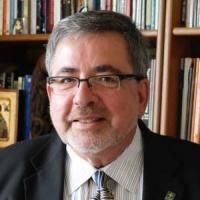 Dr. Gerardo Marín (1947–2018), Colombian American.
Dr. Gerardo Marín (1947–2018), Colombian American.
Marín was a professor at the University of San Francisco and was deeply committed to the creation of multicultural educational environments, cultural exchange, and the pursuit of justice for oppressed people in the United States and around the world. Marín authored more than 135 publications about Hispanic/Latino people and minority groups. One of his most impactful publications was a book entitled Research with Hispanic Populations, which continues to inform culturally sensitive research in the social sciences.
Media Attributions
- Dr. Santiago Ramon y Cajal © Unknown is licensed under a CC BY-SA (Attribution ShareAlike) license
- Dr. Yūjirō Motora © Unknown is licensed under a Public Domain license
- Dr. Matatarō Matsumoto © Unknown is licensed under a Public Domain license
- Dr. Jose Ingenieros © Unknown is licensed under a Public Domain license
- Dr. Melanie Klein © Unknown is licensed under a CC BY (Attribution) license
- Dr. Francis Cecil Sumner © Unknown is licensed under a Public Domain license
- Dr. Beverly Prosser © Unknown is licensed under a Public Domain license
- Dr. Pan Shu © Pan Ningbao & Chen Shaoying is licensed under a CC BY (Attribution) license
- Dr. Kenneth Bankcroft Clark and Dr. Mamie Phipps Clark is licensed under a CC BY-NC-SA (Attribution NonCommercial ShareAlike) license
- Dr. John Garcia © Unknown is licensed under a CC BY-SA (Attribution ShareAlike) license
- Dr. Efrain Sanchez Hidalgo © Unknown
- Dr. Carolyn Lewis Attneave © Unknown is licensed under a Public Domain license
- Dr. Jing Qicheng © Unknown is licensed under a Public Domain license
- Dr. Martha Bernal © Temple University is licensed under a CC BY (Attribution) license
- Dr. Joseph-White © Unknown is licensed under a Public Domain license
- Dr. Yang Kuo-shu © Unknown is licensed under a CC BY (Attribution) license
- Dr. Logan Wright © Unknown is licensed under a Public Domain license
- Dr. Ignacio Martín-Baró © Unknown is licensed under a Public Domain license
- Dr. Gerardo Marin © Unknown is licensed under a CC BY (Attribution) license
